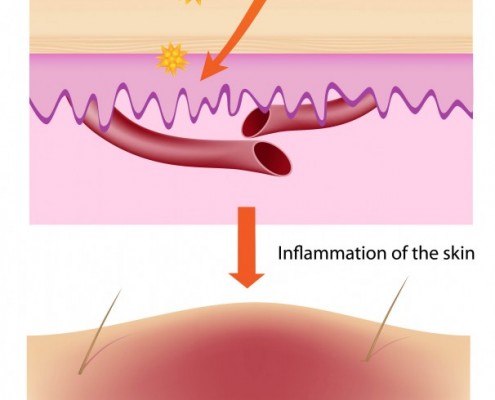Eczema
PLEASE NOTE: Advanced Dermatology does not treat eczema at this current time. This article is for education and information purposes only.
Understanding Eczema
Eczema is a medical condition characterised by irritated and inflamed skin. Up to 20% of infants and nearly 3% of adults and children in Australia are affected with this condition. The majority of infants with eczema tend to outgrow the condition by their teenage years, though a good portion of adults suffer periodic symptoms for the rest of their life. Different types of eczema have been identified, with atopic eczema being the most common. Atopic eczema has a tendency of leading to other allergic conditions, like hay fever and asthma. However, the good news is that those who suffer from this skin problem may lead a normal life with proper treatment of the condition.
Causes of Eczema
Unfortunately, there is no fully understood or confirmed cause for eczema. The general medical consensus leans on the possibility of an over active response by a person’s immune system. However, although the exact cause may not be completely clear, there are many things that may exacerbate the condition.
For example, if one suffers from eczema, avoiding long, hot showers and baths can be one way to reduce the appearance of this problem. Also, one should try to avoid a rapid change in temperature, itchy fabrics like wool, harmful cigarette smoke, gritty sand, and dust. All of these things will exacerbate the condition, making it even more uncomfortable and difficult to treat.
It is also a good idea to keep track of personal care products when trying to understand what makes your eczema worse. It has been noted that certain detergents, soaps, and solvents that may be common causes of eczema and dermatitis. If symptoms develop after using some products, it is recommended to stop using the products and consult your skin care specialist.
Symptoms of Eczema
Eczema most commonly appears on the feet, wrists, hands, the back of the knees, and face. The most common symptom of this condition is itchy skin. The feeling of itchiness tends to intensify during the night hours. This can also cause the skin to become dry and flaky, and may lead to skin breakage in places where a person tends to scratch. Excessive scratching of the affected area may lead to oozing blisters, and permanent scars.
The areas affected by eczema may appear dry, with the skin becoming thickened and scaly. For people with fair skin, reddish discoloration is also a common symptom. For those with a darker skin complexion, the condition may lighten the affected area.
Treating Eczema
When considering the treatment of eczema, the goal is to address immediate symptoms to relieve the itching, and provide a long term solution by preventing further patches from appearing.
The first defence against eczema is moisturising. Because the skin is dry and flaky, one is encouraged to treat not only the specific problem spots, but the surrounding areas of skin as well. If using lotions and creams, it is best to apply them directly after a bath or shower. Since the skin is damp, it will retain the added moisture better. Lotions and creams that contain up to 1% hydrocortisone are considered to be an effective eczema treatment and are available over the counter.
Doctors may prescribe specialized ointments and creams, which contain corticosteroids. These will alleviate the inflammation associated with eczema. If the area becomes infected because of the open wounds, antibiotics may be prescribed as well.
Some other treatments that are available for eczema patients include taking a regimen of antihistamines to reduce the itching. For example, products with tar may be used to alleviate itching, or phototherapy to treat affected areas with ultraviolet light. Doctors may also feel need the prescribe cyclosporine if the eczema does not respond sufficiently to other forms of treatments.





Leave a Comment/Share your Story
Want to join the discussion?